My arches ached, my heels slid, and my mood dipped—traditional socks kept letting me down. That pain pushed me to hunt for a better answer and find grip socks.
Grip socks feel more comfortable because their rubber grips stop internal slipping, while cushioned panels and breathable yarns reduce pressure points, heat, and moisture better than standard socks.
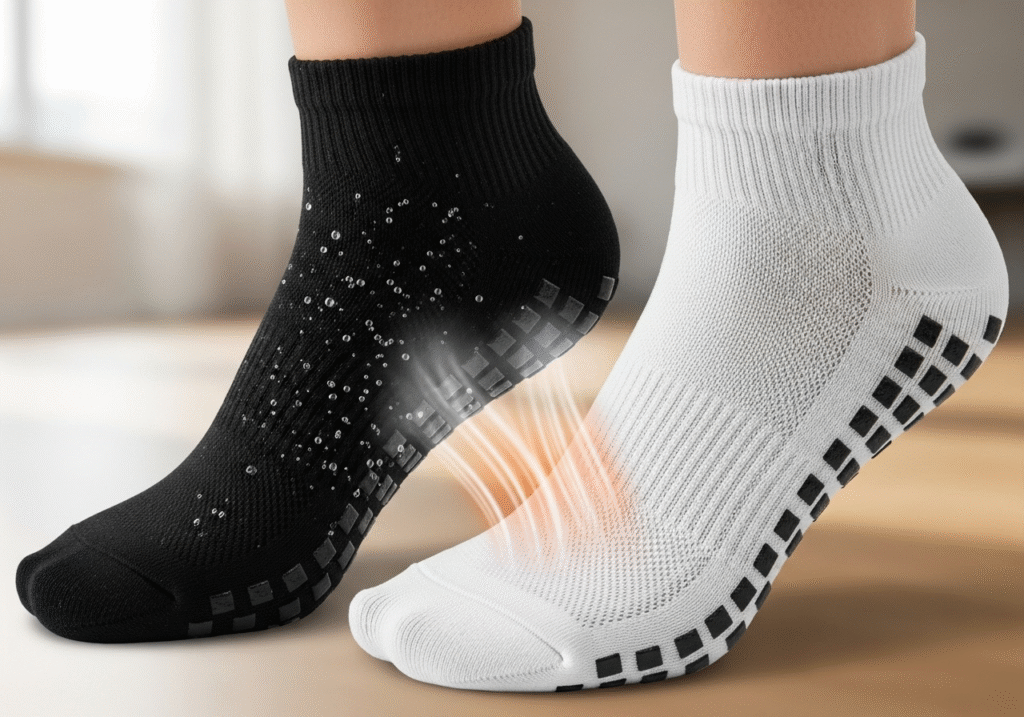
I laced up for work, errands, and gym sessions. With grip socks on, every step felt steady and cool. The difference surprised me, and I wanted to know why. Read on and feel that same switch for yourself.
Why Are Grip Socks Better Than Normal Socks?
Stretched cotton bunches up, toes rub, and heels crawl downward. Those tiny annoyances pile into real discomfort fast.
Grip socks outshine normal socks because integrated rubber treads, targeted cushioning, and snug compression stop sliding, reduce friction, and keep feet aligned for longer wear without pain.
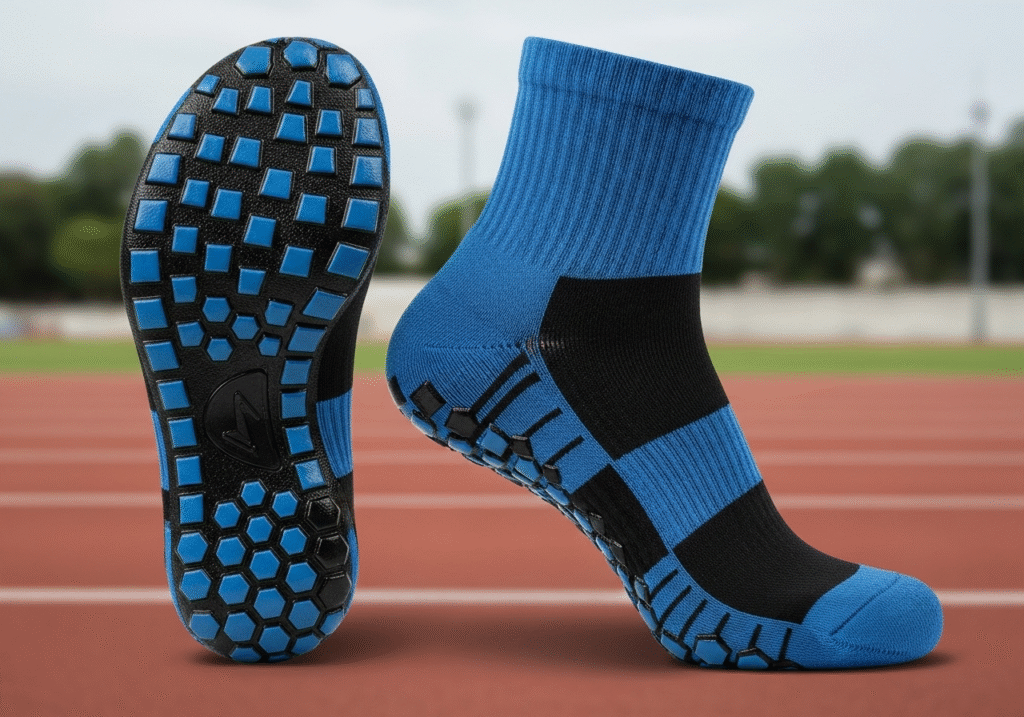
Digging Into The Advantage
Traditional socks focus on covering skin. Grip socks focus on how the foot moves inside a shoe and on the floor. Their silicone dots grab the insole so the foot stays planted. This anchor cuts shear forces that cause blisters and nail bruises.
Key Design Layers
- Outer knit: durable nylon resists wear.
- Mid pillow: low-profile terry cushions high-impact zones.
- Inner grip: silicone rows deliver traction.
| Feature | Normal Socks | Grip Socks |
|---|---|---|
| In-shoe traction | Low | High |
| Cushion placement | Uniform | Zoned |
| Compression support | Minimal | Moderate |
| Long-wear comfort | Inconsistent | Consistent |
That blend removes the small pains that make long days longer, proving why “better” is not hype but a clear, felt upgrade.
How Are Grip Socks Comfortable?
Hot spots, damp fabric, and loose arches spoil comfort. Grip socks tackle each problem head-on.
Grip socks stay comfortable because breathable yarns wick sweat, vented mesh releases heat, and compressive arches hug the foot, preventing movement that would cause friction and irritation.
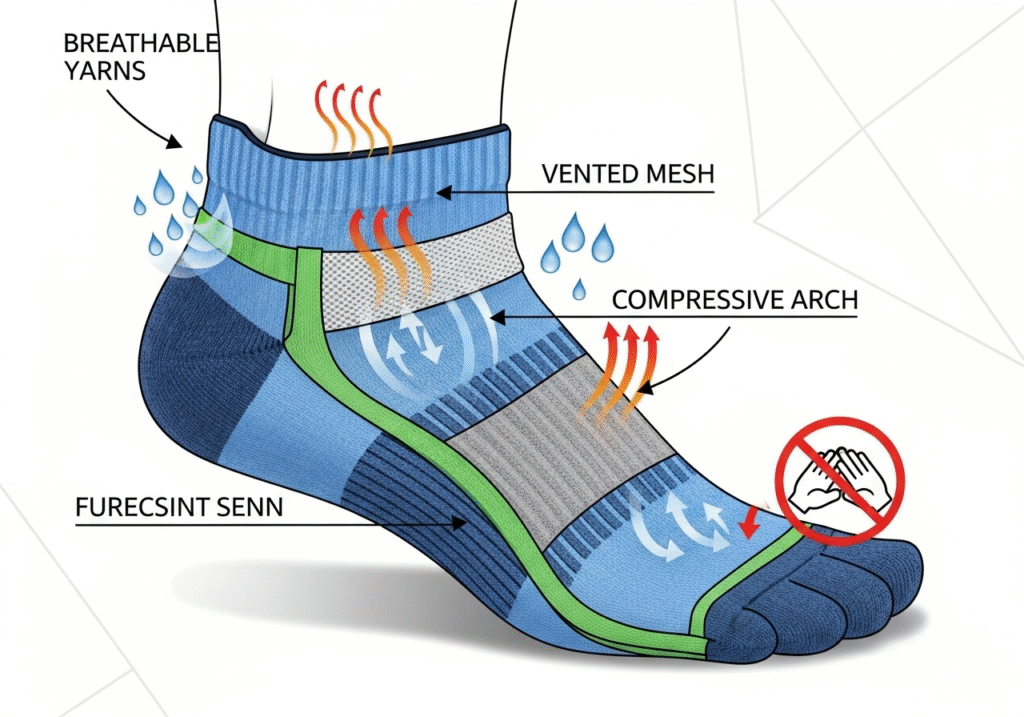
Comfort, Piece by Piece
Breathable Fabrics
Poly-cotton or merino blends pull moisture away, keeping skin dry and cool.
Vent Channels
Mesh lines along the instep let hot air escape.
Arch Hug
Elastic bands wrap the midfoot to maintain shape and fight fatigue.
| Comfort Element | Action | Result Felt |
|---|---|---|
| Moisture wicking | Moves sweat off the skin | Dry, cool footing |
| Mesh panels | Circulates fresh air | Lower temperature |
| Arch band | Reduces tissue strain | Less mid-foot ache |
Those three layers act like climate control and gentle support at once. I can stand for hours in a trade-show booth without the burn I used to feel.
Are Grip Socks Good for Your Feet?
Painful arches and blistered toes say a lot about foot health. Gear plays a role in that conversation.
Yes, grip socks are good for your feet because they cut blister-causing friction, support the arch, improve proprioception, and keep skin drier, which lowers fungal risk.
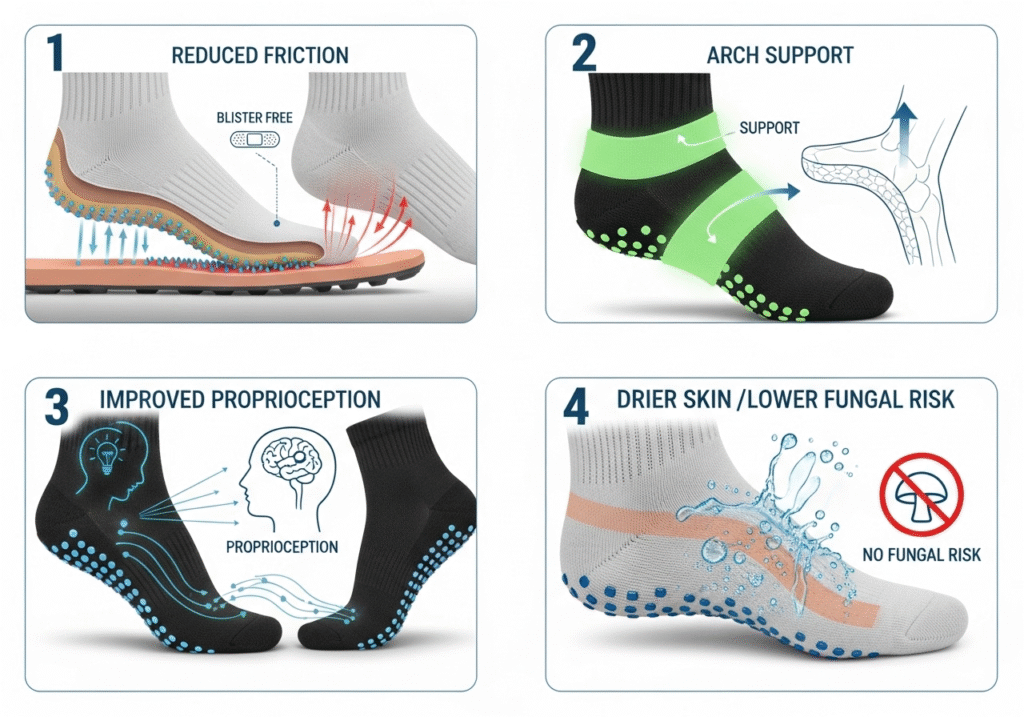
Health Benefits Explained
Friction Control
Rubber grips lock the sock to the shoe, slashing shear forces.
Supportive Compression
Light squeeze boosts blood flow and holds plantar tissues in place.
Sensory Feedback
Raised grips stimulate nerve endings, sharpening balance.
| Foot Health Concern | How Grip Socks Help |
|---|---|
| Blisters | Decrease sliding and heat |
| Plantar fatigue | Arch band limits over-stretching |
| Athlete’s foot | Faster moisture evaporation |
| Balance loss | Better tactile input |
Since switching, my recurring blisters vanished, and post-run soreness dropped a notch. My podiatrist noticed fewer calluses, too.
Can You Wear Grip Socks Over Normal Socks?
Layering seems tempting in cold weather, yet bulk can ruin fit.
You can wear grip socks over normal socks, but doing so cancels many benefits; double layers slide against each other, increase heat, and crowd the shoe, risking blisters again.
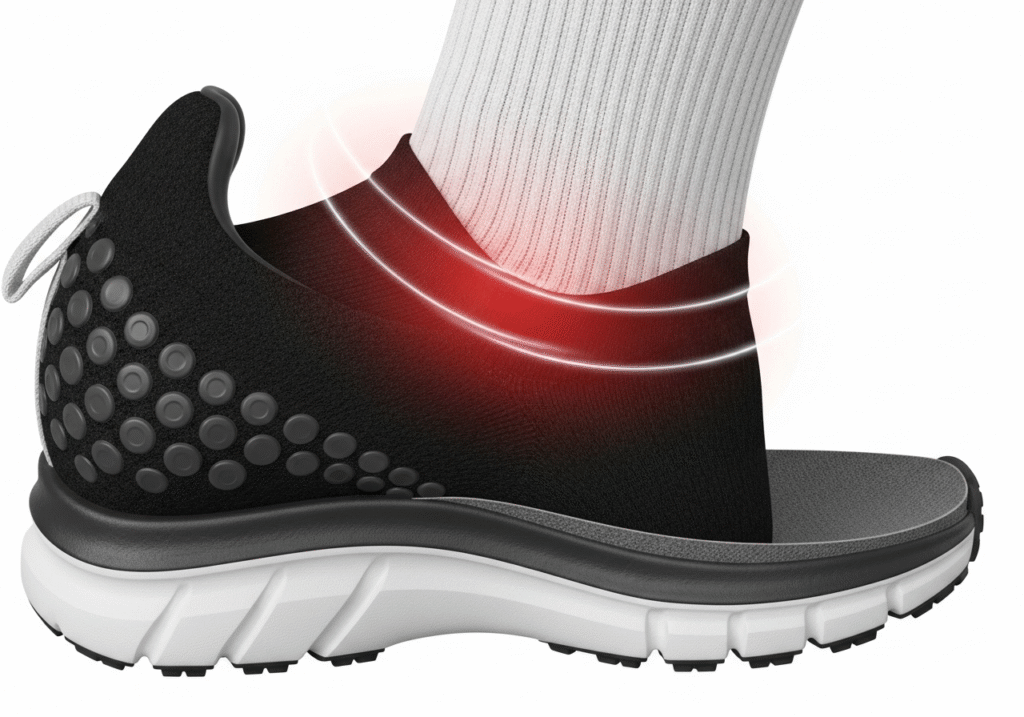
When Layering Works and Fails
Cold-Weather Hack
Thin liner + grip sock may provide warmth without too much bulk if the shoe has space.
Fit Problems
Most shoes allow only one sock layer before tightness harms circulation.
Grip Loss
Rubber pads1 need direct contact with the insole2. A liner blocks that and invites slip inside the upper sock.
| Scenario | Recommended Choice |
|---|---|
| Chilly morning run | Thermal grip sock only |
| Hiking in snow boots | Thin wool liner + tall grip |
| Daily office wear | Single light grip sock |
I tried doubling socks on a winter commute. My toes warmed, but heel slippage returned. One thermal grip pair proved the smarter route.
Conclusion
Grip socks beat regular socks by locking the foot, venting heat, and easing strain—delivering lasting comfort you can feel from dawn to bedtime.
Relate:
